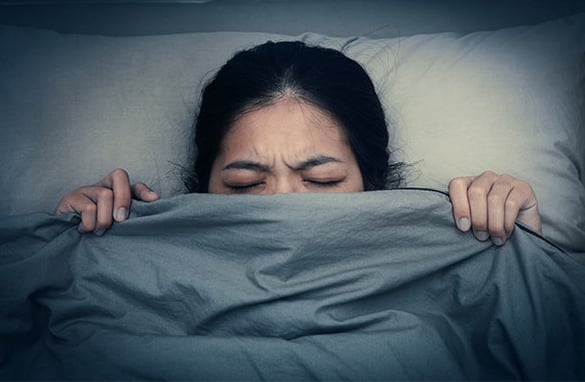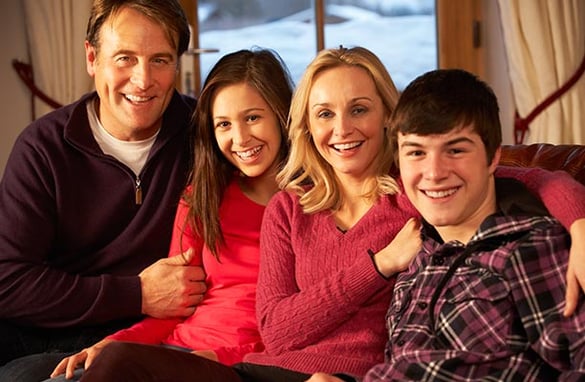Many parents are in a constant battle with their preteens and teens about what kinds of movies are appropriate. Adolescents are wired to push boundaries, but as parents it’s our job to protect them. Horror movies could have a negative effect on their developing minds. Here are some of the dangers and tips for discouraging teens from seeking out this type of entertainment.
Horrifying Effects
Scary movies don’t just make kids jumpy while they’re watching. They can have some long-lasting effects.

Anxiety and Phobias
Research shows cognitive development is based on schemas. Schemas are ways we make sense of what’s going on around us and fit it into a larger worldview. In teens, their schemas are still developing.
When adults view scary movies, we know the difference between fact and fiction. Monsters don’t exist and aliens don’t pop out of people’s stomachs. However, some scary movies draw their material from real life. Serial killers are out there, and evil is very real.
It can be difficult for preteens and teens to make that distinction. If they tend to worry when they hear about bad things happening or if they have trouble separating truth from fiction, horror movies might be especially damaging. Some children could be at higher risk of developing an anxiety disorder based on what they see.
Trouble Sleeping
Even adults sometimes have a hard time falling asleep after a scary movie. During the movie itself, your heart rate spikes and you feel an increase in adrenaline when things pop out and make loud noises. For kids, the effect is magnified. Every noise, every shadow could mean something is coming to get them. The stress of watching a scary film could carry over into the night, making it difficult to fall asleep or even causing nightmares.
Desensitization to Violence
When you see something over and over again, eventually you get used to it. Aggression that at first seems startling and extreme becomes normal. Blood and gore that used to make you hide your face turns into something that doesn’t even make you flinch. Torture films desensitize viewers to violence.
How to Say No

1. Let your kids know how you feel about scary movies before the issue comes up. Talk to them when they’re in a receptive mood so they understand your reasoning. Discuss situations where they might be invited to watch horror films and how they feel about declining the invitation.
2. You want your kids to be happy. Sometimes when your child wants to watch a scary movie at a friend’s house, saying no means they can’t be with their peers. You’re seen as the restrictive, overprotective parent and your child misses out. Ask yourself what is the right thing to do for your child. When you refuse to let your child watch horror movies, you protect them from unsettling, violent images that could profoundly influence their development.
3. If your pre-teen or teen decides to watch horror anyway, don’t give up. Set hard limits at home. When they visit friends, talk to parents ahead of time to find out what they might watch and who will monitor their entertainment choices. Keep talking to your child about what you value and why it’s important.
Provide Positive Alternatives
Sometimes adolescents get drawn into scary movies because they just don’t know what else to watch. Provide alternatives for viewing that entertain and elevate at the same time. PureFlix.com offers thousands of titles that can be streamed on any device. Check out our featured videos today.


COMMENTS